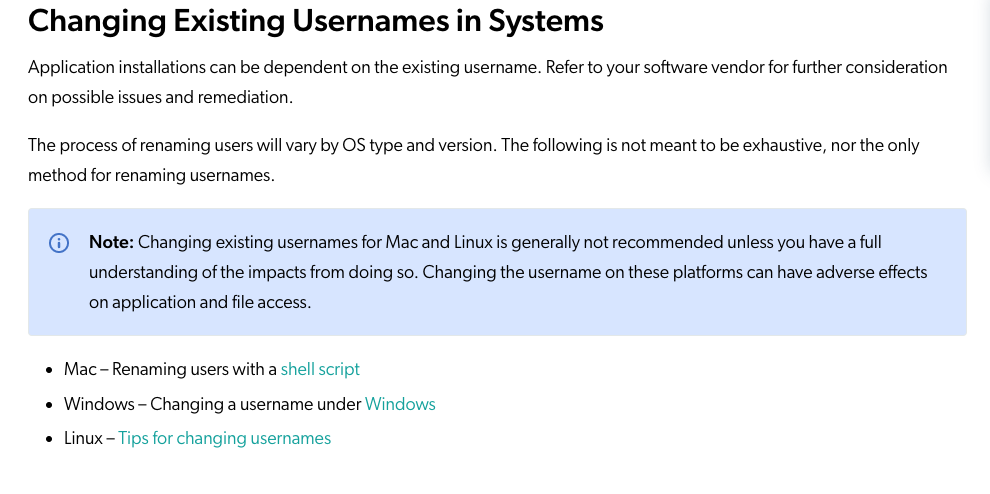Make Changing Names Easy
A reflection on how identity is grounded in a non-changing name.
Today I was working with an IT team I think is great and we had a discussion where they basically came to the conclusion that we can give users new aliases when they get married and take a new name, but by default we should not change their login identity.
In other words, if I were albertson@domain.com we could update my email to be konda@domain.com but I would still need to log in to my computer with albertson@domain.com.
The group, all of whom were men, did not immediately understand the impact of what they were saying … so I said:
Wait, are you saying if I got divorced and started using Albertson again (the last name I was born with) I could never change my login from konda@domain.com? I feel like that’s a severe limitation that if I were someone that wanted to change my name I would feel pretty strongly about.
I can’t really imagine being divorced, but I can imagine that if I were I would hate logging in with my ex spouse’s last name.
One real response was:
What if we supported it on demand but ony changed the login upon request because it is hard?
I replied:
I’m not sure. It might be interesting to ask a room full of women an open ended question like: “How would you want this to work?” But I would guess that if someone comes to us with a name change, they probably don’t really want to talk with IT about how much they really want to change their login. Sure, every circumstance is different, some people may not care at all. Now, this may be just systemically woven into Google, Windows and Apple so that it is hard on a tech level (maybe because they didn’t ask enough people) but I think it is worth asking the question.
The IT team dug up documentation like this to illustrate their point:

When I saw that it kind of hit me even harder. Not only was this small elite IT team doing it wrong™ but the tools they were using were built wrong.
It seemed immediately obvious that the folks designing these systems didn’t include enough people that would think about this differently and so the systems are amazingly unable to do this simple thing.
Apple, Microsoft, Google - basically all software vendors - should stop and identify more places where our core assumptions are just systemically wrong because they were designed by a small set of likeminded people.
Oh, and if you’re a man and you’re going to come at me and say this isn’t a big deal, if you haven’t changed your name you may not have standing to make that assertion!
Personally, I’m going to keep thinking about these types of systemic things and try to call them out wherever I can.